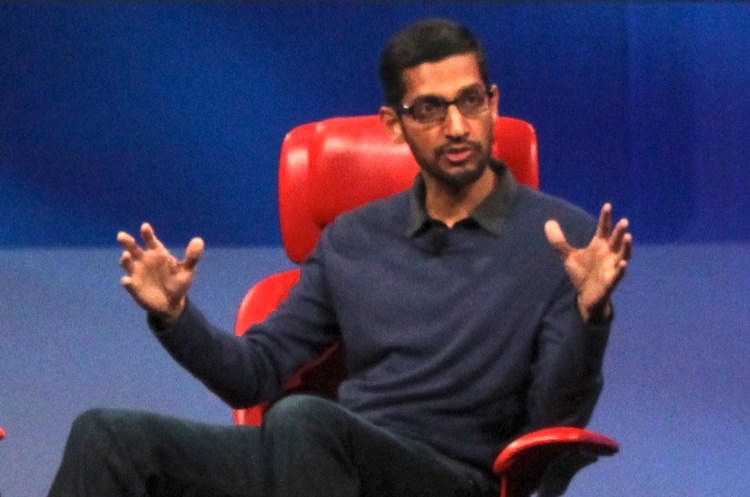BARCELONA, Spain — Telecom industry sources on the ground here at Mobile World Congress tell VentureBeat that Google is probably serious about its plans to launch a mobile virtual network. But, they add, an actual deployment would probably be very limited and not a threat to big, nationwide wireless providers.
Reports of Google’s plans to become a mobile virtual network operator (MVNO) showed up a few weeks ago, and Android chief Sundar Pichai referenced the initiative for the first time publicly during a keynote address here in Barcelona Tuesday.
An MVNO rents existing network operators’ wireless infrastructure and then resells it as its own service. But the rapid spread of Wi-Fi networks could limit the reliance of MVNOs on existing 3G and 4G networks.
The MVNO project is the latest example of the kind of small-scale “skunkworks” projects Google encourages within the company. The projects usually attempt to disrupt a given industry. Those that show promise are productized. The ones that catch on are continued.
One source here said Google intends to use a sort of “franchise effect” to move others to offer lower-cost alternatives to the $75-a-month mobile service we’re all used to. The source gave the example of McDonald’s restaurants that are owned by the corporation, which often run trial projects to demonstrate and promote new programs or products to privately owned McDonald’s franchises.
Google would do the same as an MVNO. It would demonstrate how the service would work, and how it could positively affect the marketplace, so that others might do similar things. A Google MVNO might also exert downward pricing pressure on the going rate for mobile service in the markets where it’s offered.
The best example of a successful similar effort by Google, of course, is Google Fiber, which is now providing super-fast broadband and a suite of fiber-based services in several cities. And indeed Google Fiber has forced broadband service prices down in every market where it’s become available.
As more Internet traffic and ad serves move to mobile, anything that increases access to mobile service is a good thing for Google’s business.
But projects like these may have a built-in braking mechanism.
Google, after all, depends on big telcos like AT&T and Verizon to continue selling Android phones. If a Google MVNO starts taking a lot of mobile customers away from the big telcos, the telcos might start to think twice about selling Android phones.
So don’t expect a nationwide rollout of Google cellular service anytime soon. It’s a Google science project that might be offered to consumers in a limited capacity and in a few markets.
It might also launch a new kind of service that uses only Wi-Fi service for data and voice service. It wouldn’t be the first to do this.
Then the Google people will stand back, scratch their beards, and consider the effects the program has on the accessibility and pricing of mobile phone service.


